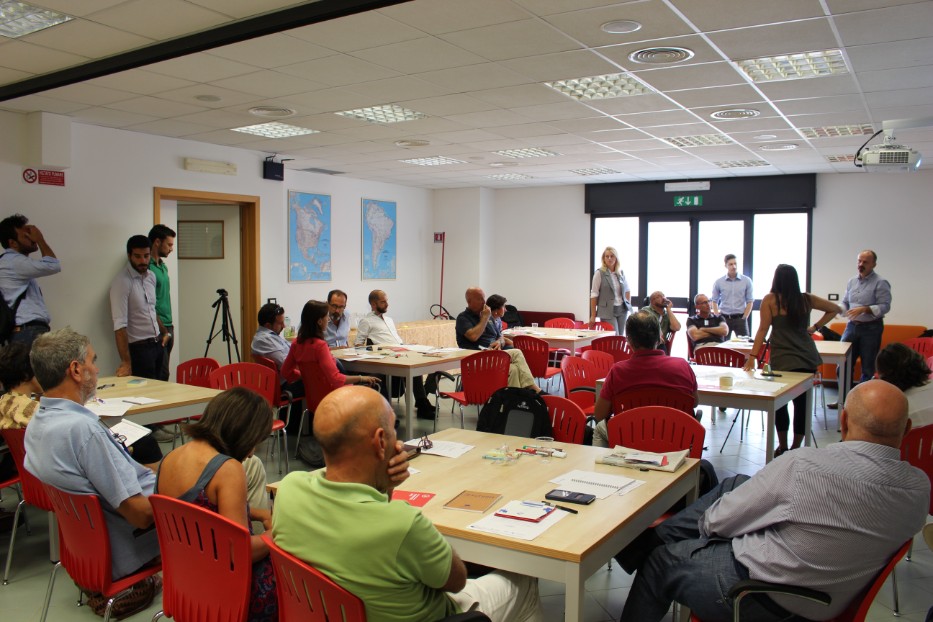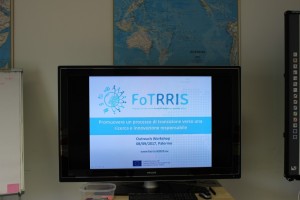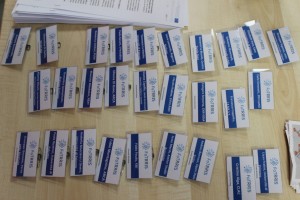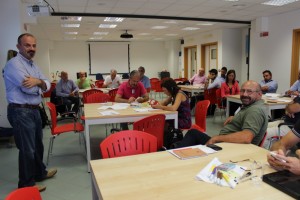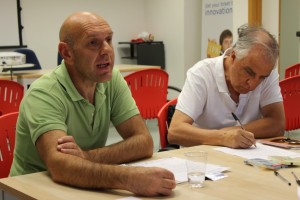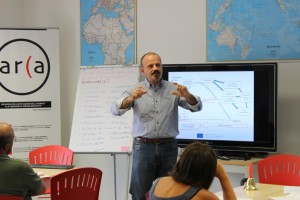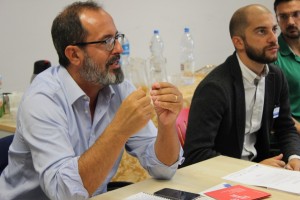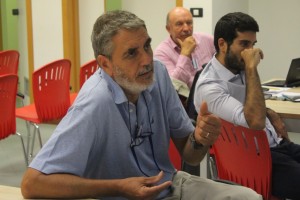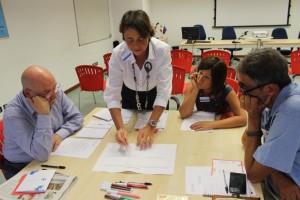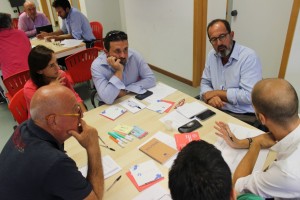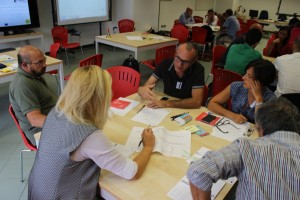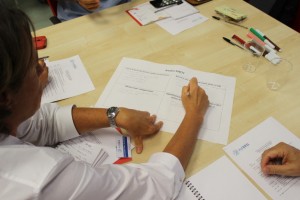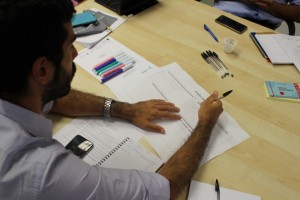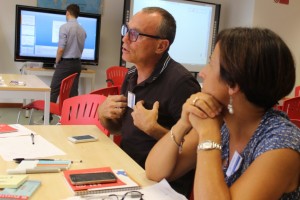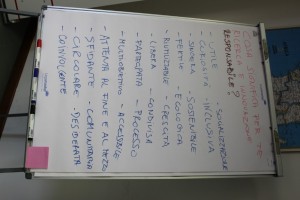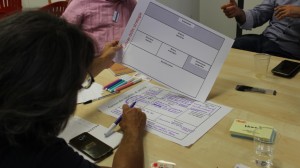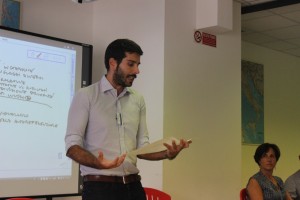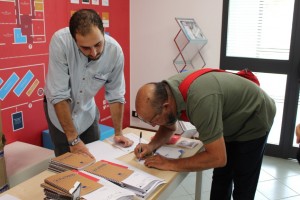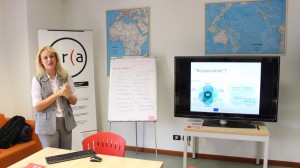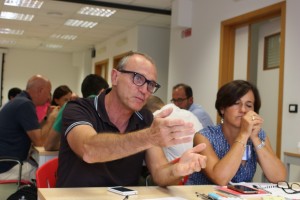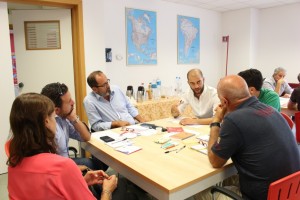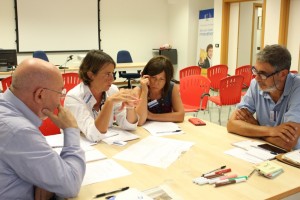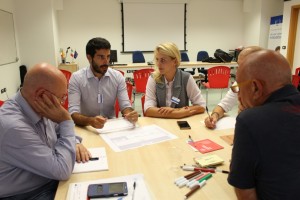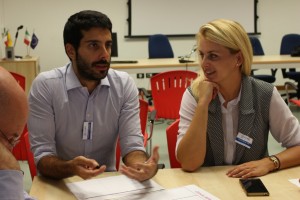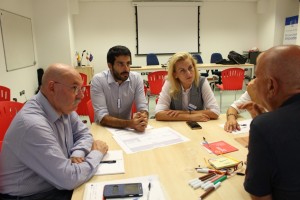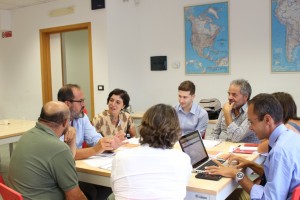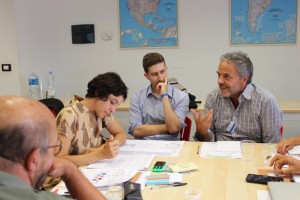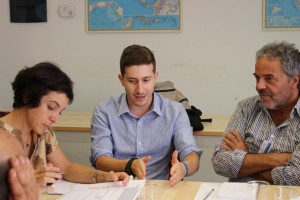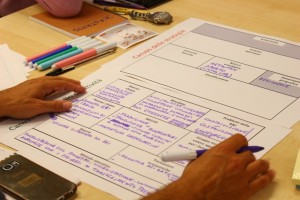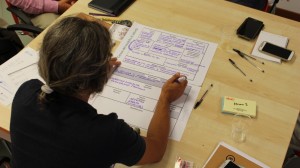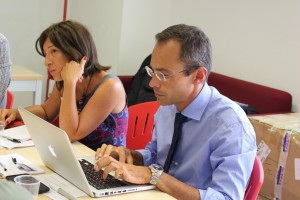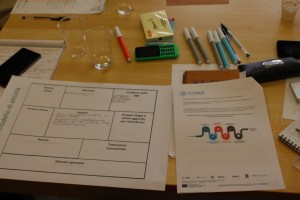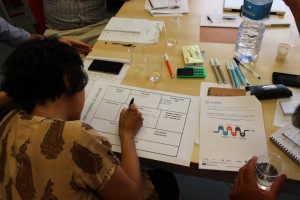On 8 September 2017 the Italian (Sicilian) 6-hour Outreach Workshop was organised. It was moderated by Transition Experiment’s (TE) facilitator Mr. Fabio Montagnino with the support of the Competence Cell members. The overall aim of the workshop was to disseminate information about the Co-RRI TE in Italy and to receive external feedback of the process, results and impact. Additionally, this workshop helped create a local network of actors of the Quadruple Helix model for the innovation’s creation based on the sharing of knowledge and transfer of know-how. The strategic aim of the workshop was to create alliances and gain support for Co-RRI through discussions about its potential role and development at local (national) level.
Participants in the workshop were selected from the contact databases: the external group of stakeholders (representatives of Higher Education and Research organisations, process experts, local authorities, citizens), TE members, from the pool of experts (who were interviewed for the WP1). More than 35 potential participants were invited and in total 27 participants from all stakeholders’ groups took part in this local event.
The meeting started with the presentation of participants and their personal understanding of the ‘’Responsibility’’ in the frames of the R&I process. After, the concept of the competence cell was introduced, presenting Sicilian model and a vision of its functionality in the future was drafted, after the lunch all participants were asked to present their vision on strategic and operative canvas for the Competence Cell. Insights how to promote CO—RRI on local/national level were discussed.
Participants also discussed the impact created by the TA and TE on the local community and region. According to them, the key aspects are:
– The FoTRRIS concept helped to map and reflect on structural characteristics of local systems (economic, political, social, cultural), it means that new transdisciplinary capacities (human skills / competences) will stay in the community and will be transferred to other activities.
– The TE fostered the development of the local governance, and as a result the roots of micro dynamics of the democracy can be more visible, and the target groups and their needs can be better identified.
– Moreover, the TE helped support ownership feeling in the community through the active involvement of key actors and feed the creation of a vision of participative citizenship. One of the outcomes is the recognition of citizens’ knowledge and their contribution – alternative ways of policy making in regions.
– R&I, politicians, businesses and other actors indicate that the MLL is a tool that helps pay more attention to the territory and promote its growth in the region.
– Appearance of intermediate body / facilitator for Co-RRI practices and coordination of such activities has a strong impact on local development, as R&I transdisciplinary is something that is still missed in local areas.
– Definitely, such an experiment has showed that the region has full potential to support and promote several priorities of the ERAR in Italy (creation of more effective national research systems; understand sectors where gender equality gap exists and foster gender mainstreaming in research; to fill scientific knowledge by circulation and transfer of citizens’ knowledge).
Comments are closed.


